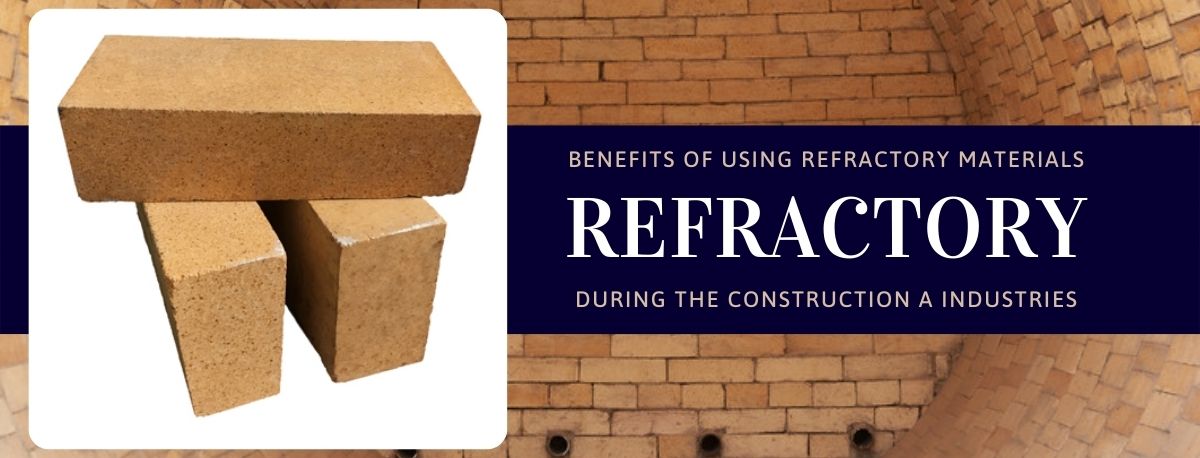
Benefits of using refractory materials during the construction of the industries
Among the most unacknowledged stars of the industrial sector, refractories take the cake. Refractory metals are a group of metallic elements that are more robust and stable than other types of metals due to their unique qualities. Refractory materials are becoming more common as the building industry transitions to the digital era. Despite the numerous advantages of employing refractory materials in construction projects, understanding the benefits of employing refractory materials in the building sector is crucial for new contractors.
Reduce the need for costly repairs
Building with refractory bricks reduces the need for expensive repairs, keeps your workers safe, and gives you peace of mind. The construction industry is faced with the responsibility of building infrastructure that will provide years of functionality and performance without requiring costly repairs or maintenance. One such material is refractory materials, which can help reduce the need for costly repairs on projects by maximizing production and lessening the chances of accidents.
Avoid downtime and job site shutdowns
Avoid downtime and job site shutdowns, save labour costs, and reduce your carbon footprint. These are just a few of the great benefits of using the latest in construction technologies like fire refractory bricks. Refractory materials are primarily used in industrial settings with high heat conditions to protect metal alloys, structural steel, and cemented bricks that would otherwise deteriorate at temperatures above 1,300 degrees Fahrenheit. They have a long life span, safeguarding against costly downtime and job site shutdowns while delivering the great performance that will outlast more than 50 years.
Reduce project costs across the board because of reduced failures.
Refractory materials like castable refractory cement and acid-proof bricks are often used in the construction industry because they’re proven to be guaranteed to last for multiple years with minimal maintenance. Using a combination of both refractory and non-refractory materials allows you to establish a long-lasting infrastructure that will provide the necessary levels of energy production and clean air while being cost-effective. Such materials can be used on solar panels, storage batteries, steel buildings, cooling towers and any other infrastructure that requires a reliable source of heat as well as efficient use of energy.
Improve the mechanical and chemical properties
Refractory metals' capacity to enhance the chemical and physical properties of metallic materials is a crucial advantage. By adding a small amount of these metals to a metal alloy, the mechanical properties of that alloy can be improved. The refractory industry has grown exponentially in the last 10 years due to the increase in global economic growth. As well as this, refractory metals have experienced significant growth due to their ability to improve quality during production phases and provide better optimization during recycling procedures. As these two factors are on the rise, so too is the demand for refractory metals.
Conclusion
Refractory materials are made from a variety of different compounds; they can absorb and retain the energy associated with high heat loads without degrading performance or losing their structure. A lot of people are interested in learning more about the benefits of using refractory materials during the construction of industries. For more information, it is also preferable to speak with a supplier of refractory materials.
Refmon Industries have extensive experience in the use of refractory materials during the construction process. We might enhance a company's bottom line too. We also give you details on the advantages of applying these resources in your line of work.